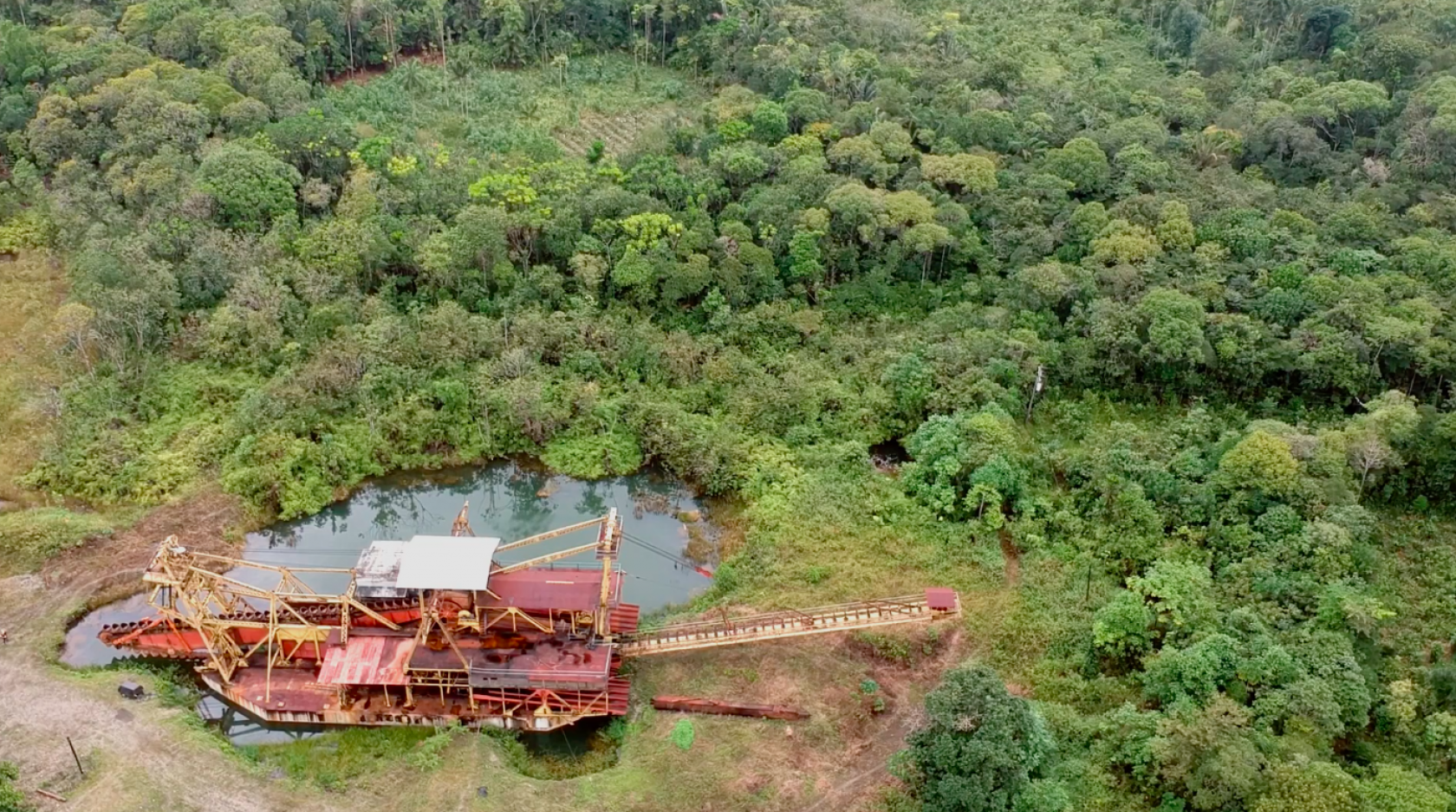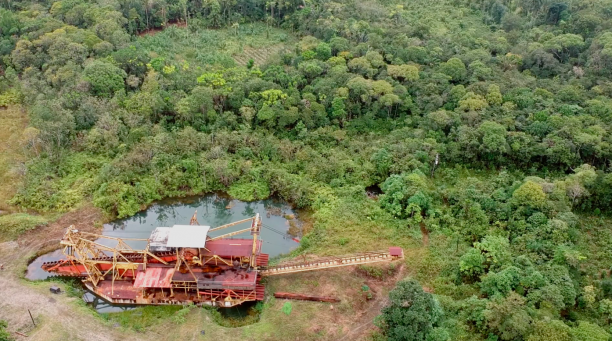Relations with the Earth have been social relations of work and exploitation since the emerging industrial capitalism of the 19th century, just as they were in digital capitalism in the 21st century.
Who owns the natural resources and who receives their profits? How do wage labor and exploitation shape our relations with the earth and our relations with each other? How does the acceleration of digital processes counteract the slowness of geological processes? The artist Regina de Miguel asks herself these questions based on the regions of Chocó in Colombia and Rio Tinto in Spain. Here the state, the local population and international corporations are fighting for underground gold, an essential element for the computer industry as well as an alien element, which is an object of evil associated with desire and violence over bodies and territories.
Through various scenarios, different aspects of extractive coloniality, resistance and guerrilla strategies, Yuli Correa's feminist social activism in Colombia during the peace process, and a critical re-reading of Bogota's Gold Museum and its protocols of concealment are made visible, ending with an epilogue based on Michael Taussig's “My Cocaine Museum”.
This special screening of Catábasis is a part of the ongoing series MOCA Climate Conversations.
Pre-recorded conversation following screening, in Spanish language with English captions.
Regina de Miguel is known for her filmmaking and interdisciplinary artistic practice that combine research and the development of processes that result in the production of knowledge, films, and hybrid projects. One of the main discursive threads in de Miguel’s work is the critical analysis of the supposed objectivity of scientific devices of representation and the conditions of production of scientific knowledge. From a methodical approach, she establishes complex networks of connections that are nourished by the philosophy of science, ecofeminism, and speculative fiction and terror, which give rise to theoretical, existential, and poetic displacements where fragility operates as a form of resistance.
Her filmography has been shown in numerous museums and institutions internationally and she recently contributed to the volume “140 Artists’ Ideas for Planet Earth” (2021), edited by Hans Ulrich Obrist and Kostas Stasinopoulos. Her work is held in several public and private collections, including the Thyssen-Bornemisza Art Contemporary and the Museo Nacional Centro de Arte Reina Sofía.
Mateo Chacón Pino is a Colombian-Swiss art historian, curator and author. He has curated projects in art spaces, museums, galleries and farms in Switzerland, the Netherlands and Germany. He participated in The Curatorial and Artistic Thing at sixtyeight art institute in Copenhagen and in the Curatorial Programme at De Appel, Amsterdam. Mateo Chacón Pino currently lives in Kassel and works as a research assistant at the documenta Institute and at the University of Kassel at the Department of Art and Society, by Prof. Dr. Liliana Gómez. In his dissertation The Distinction of Art & Nature, he questions the epistemic time of art history in light of the Anthropocene and problematizes the notion of Contemporary Art in the context of the exhibition. He completed his master's thesis in 2021 at the University of Zurich on the role of governmental art funding for the understanding of art using the case study of the SüdKulturFonds of Switzerland.
Part of MOCA’s environmental programming–MOCA Climate Conversations–are organized by Kelsey Shell, Environmental and Sustainability Strategist, with Alitzah Oros, Public Programming Associate, The Museum of Contemporary Art, Los Angeles.
Highlighting the museum’s work around climate, conservation, and environmental justice, MOCA’s environmental programs are guided by the work of the MOCA Environmental Council, the first sustainability council at a major arts museum in the United States. The environmental programs present artists, activists, and scholars committed to critical ecological issues in Los Angeles and globally.
The 2023 MOCA Climate Conversations are made possible by Nora McNeely Hurley and Manitou Fund.

Still from Catábasis, 2023. Courtesy of Regina de Miguel.
MOCA Climate Conversations: Catábasis Film Screening and Conversation
Screening Environmental CouncilProgram

Program
Thursday, Dec 21, 2023 6pm
MOCA Climate Conversations: Catábasis Film Screening and Conversation
Relations with the Earth have been social relations of work and exploitation since the emerging industrial capitalism of the 19th century, just as they were in digital capitalism in the 21st century.
Who owns the natural resources and who receives their profits? How do wage labor and exploitation shape our relations with the earth and our relations with each other? How does the acceleration of digital processes counteract the slowness of geological processes? The artist Regina de Miguel ask…